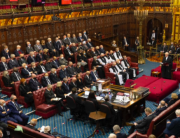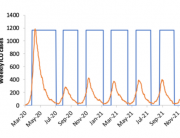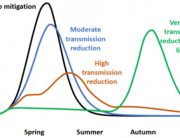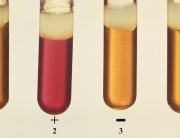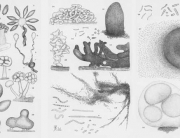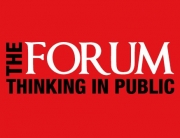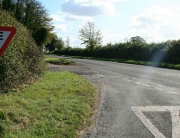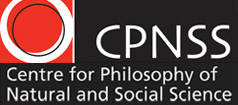When advisors warned of “significant concerns” about the Alpha variant, the UK government acted quickly. But suspicions about Alpha’s greater transmissibility were first noted a week earlier. Jonathan Birch suggests that when the stakes are so high, even low confidence in a particular outcome can be enough to justify policy interventions.
As I write this, a new COVID variant of grave concern has just emerged, now dubbed Omicron. The news broke while I was reviewing evidence regarding the UK’s policy response to another variant: Alpha, initially known as the “Kent” variant. This was the variant that plunged the country into a third national lockdown just under a year ago. The Alpha variant seems like old news. But are there valuable lessons to be learned right now from the decisions made a year ago?
In some ways, the response to Alpha was relatively successful, at least if we are comparing it to the UK’s response to the initial rise of COVID, which I analysed in a recent paper, and which was recently described by MPs as one of Britain’s worst ever public health failures. In the early days of the pandemic, advisers did not have a clear framework for communicating levels of uncertainty and probability to policy-makers. This led to confusion – for example, confusion over how likely the so-called “reasonable worst-case scenario” actually was.
By late 2020, a framework was in place, with agreed language for describing probabilities, a risk assessment protocol for new variants, and a shift towards the terminology of confidence levels, such as “moderate confidence” and “high confidence”. This framework kicked into action impressively around 8 December 2020 when concerns were first raised of surging infection rates in Kent. Restrictions were tightened just 11 days later, on 19 December, after a huge amount of high quality, super-fast scientific work.
Advisers praised both their own response and the government’s, with some justification. Peter Horby, chair of the influential advisory group NERVTAG, commented to MPs that “we sent our first note to [the government] raising a significant concern on the 18, and on the 19 measures were put in place”. Neil Ferguson remarked that “it would have been very difficult to have the same sort of level of confident conclusion that this really was associated with higher transmissibility very much earlier than we did”.
Still, something worried me about this account. Scientific advisers had an evidence-based suspicion that the variant was a major threat as early as 11 December 2020, and possibly earlier than this. The NERVTAG minutes for 11 December note that “the relative weekly growth of the [Alpha] variant is 60% greater than other variants in that region.” They go on to comment that it “might be postulated that this variant is more transmissible but there is no evidence apart from the rapid spread.”
Why the delay of over a week between the suspicion of increased transmissibility, based on knowledge of rapid spread, and a policy response? The obstacle seems to be that advisers had only low confidence that the variant was more transmissible. Sometimes new variants spread rapidly by chance, and it was hard to rule that out. “Low confidence” is a term advisers use when the balance of evidence tilts towards a claim, but when there is a lack of consensus and/or the evidence is weak.
What’s the right response when your confidence is low? On 11 December, NERVTAG recommended a list of actions aimed at improving their confidence levels:
enhanced surveillance in Kent and London, sampling to obtain a viral culture, assess fitness in primary human airway cultures, carry out neutralisation studies on convalescent plasma and post vaccination sera/plasma, look for international datasets … [and] enhanced sequencing from other Lighthouse labs.
They also agreed on the need “as the data emerges, to urge DHSC to consider whether there is a need to intensify control in affected areas” (italics added).
They did not, however, recommend immediate policy interventions to reduce transmission, such as lockdowns. Horby’s comment above also implies that they did not raise a “significant concern” until 18 December. There seems to have been a tacit assumption guiding the advice: low confidence in increased transmissibility cannot justify even raising a significant concern, let alone a call for lockdown-style action. More evidence is needed.
This principle might have attracted wide support before the pandemic. But the pandemic has taught us something about the distinctive value of rapid, precautionary action that can be undone later, if it turns out not to have been needed. If you wait as a variant grows exponentially, you will end up with a much bigger problem, and a longer lockdown.
I want to suggest a better principle: the confidence level required to justify recommending a policy response (or at least raising a significant concern) should be sensitive to the stakes. When the stakes are high, low confidence can be enough. One can always ask for more evidence – but taking precautionary action at the same time, while gathering that evidence, is sometimes wise.
An important point here is that new variants emerge constantly, and many do not have enhanced transmissibility. Given this, we must set the evidential bar high enough to avoid a situation where we are locking down for any and every new variant. That is a difficult judgement call. We should not judge the advisers on NERVTAG harshly for making a call that seems questionable in hindsight.
My point is simply that we can learn from this. We have a track record in Britain of not acting quickly enough and with enough precautionary thinking in the face of new variants, so advisers and policymakers need to dial up their precautionary attitude – while still being mindful of the risk of going too far in the other direction.
Dr Jonathan Birch is an Associate Professor of Philosophy at the LSE and Principal Investigator (PI) on the Foundations of Animal Sentience project. In addition to his interest in animal sentience, cognition and welfare, he also has a longstanding interest in the evolution of altruism and social behaviour.
Acknowledgements
I am working on the SAGE minutes (and associated documents) in collaboration with Richard Bradley, Joe Roussos and Izzy Gurbuz, and I thank all of them for their help. This project is supported by the LSE Research Support Fund. This blog post solely reflects my own opinions and should be read as an immediate reaction to developing events.












